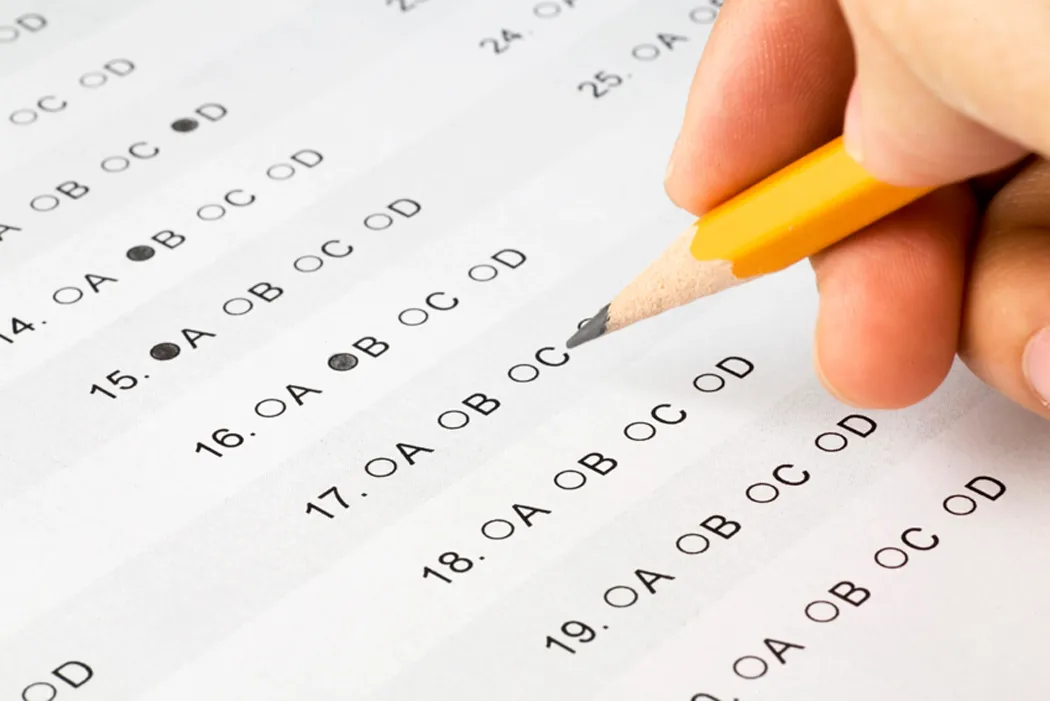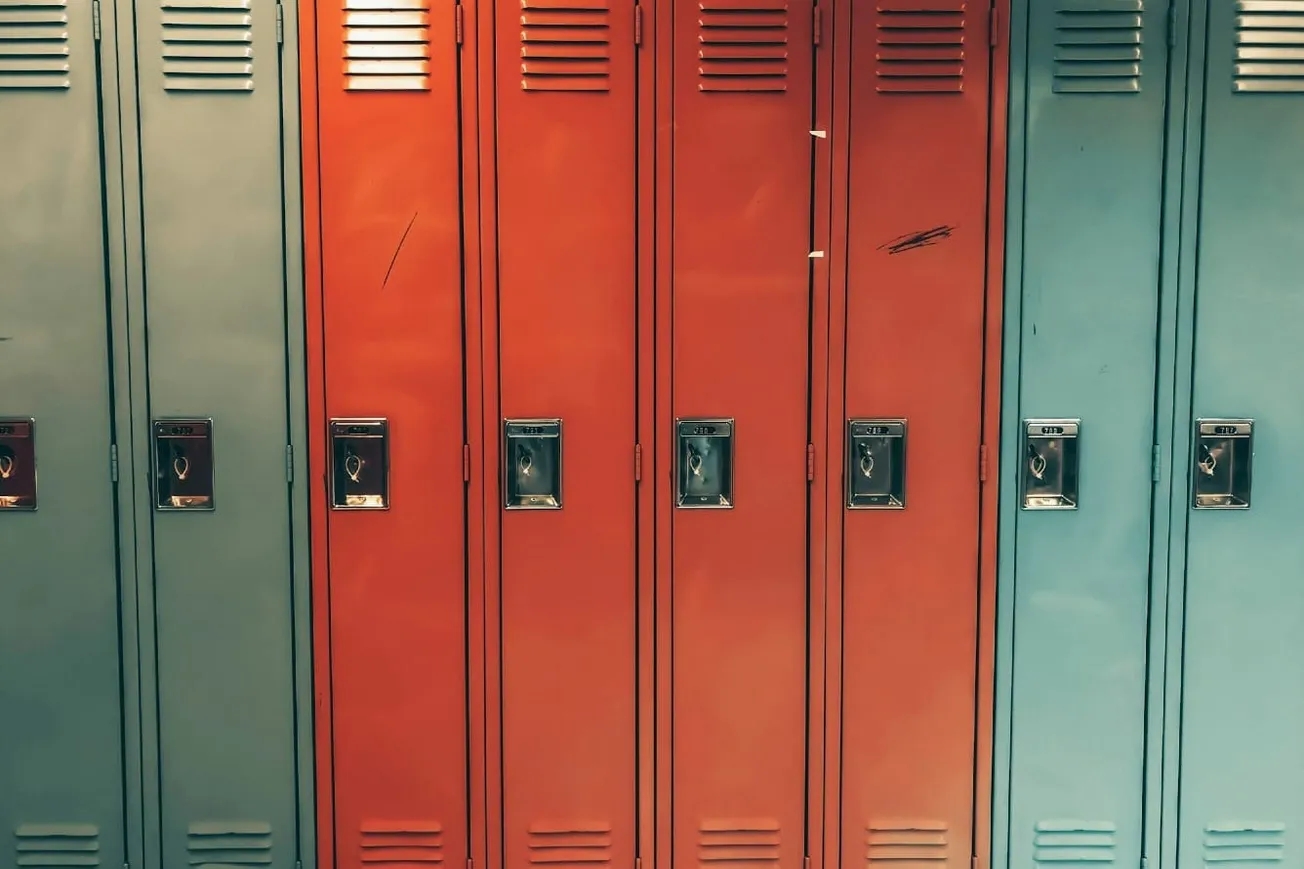- The ACT's annual benchmark reveals a six-year decline in high school student performance, with a class of 2023 average Composite score of 19.5, the lowest since 1991
- Many students fail to meet subject-specific readiness benchmarks, raising concerns about their college readiness
- Changes in college admission policies, going test-optional, contribute to a lack of motivation for high school students to excel in standardized tests
No matter their political affiliation, Americans around the country are deeply invested in their local public schools. Many are involved in PTAs and serve on school boards; others volunteer and coach. Nearly all support district requests to add more money to school budgets through bond financing campaigns or plain vanilla tax increases.
In return, Americans ask that children do well in high school so that graduates can handle the rigor of university learning or the analytical demands of a job after high school.
The ACT, the nonprofit organization that conducts the well-known American College Testing (ACT) to determine essential English, Math, and Science competencies, put out its annual college readiness benchmark this week.
For the sixth year in a row, the performance of high school students fell. The average Composite score fell to 19.5 for the class of 2023 (a perfect score is 36), a decline of 0.3 points from 2022 - and the lowest score since 1991. The average scores in mathematics, reading, and science subjects were all below the ACT College Readiness Benchmarks for those subjects. Shockingly, 43% of test takers did not meet any of the benchmarks. Just one in five (21%) met all the benchmarks.
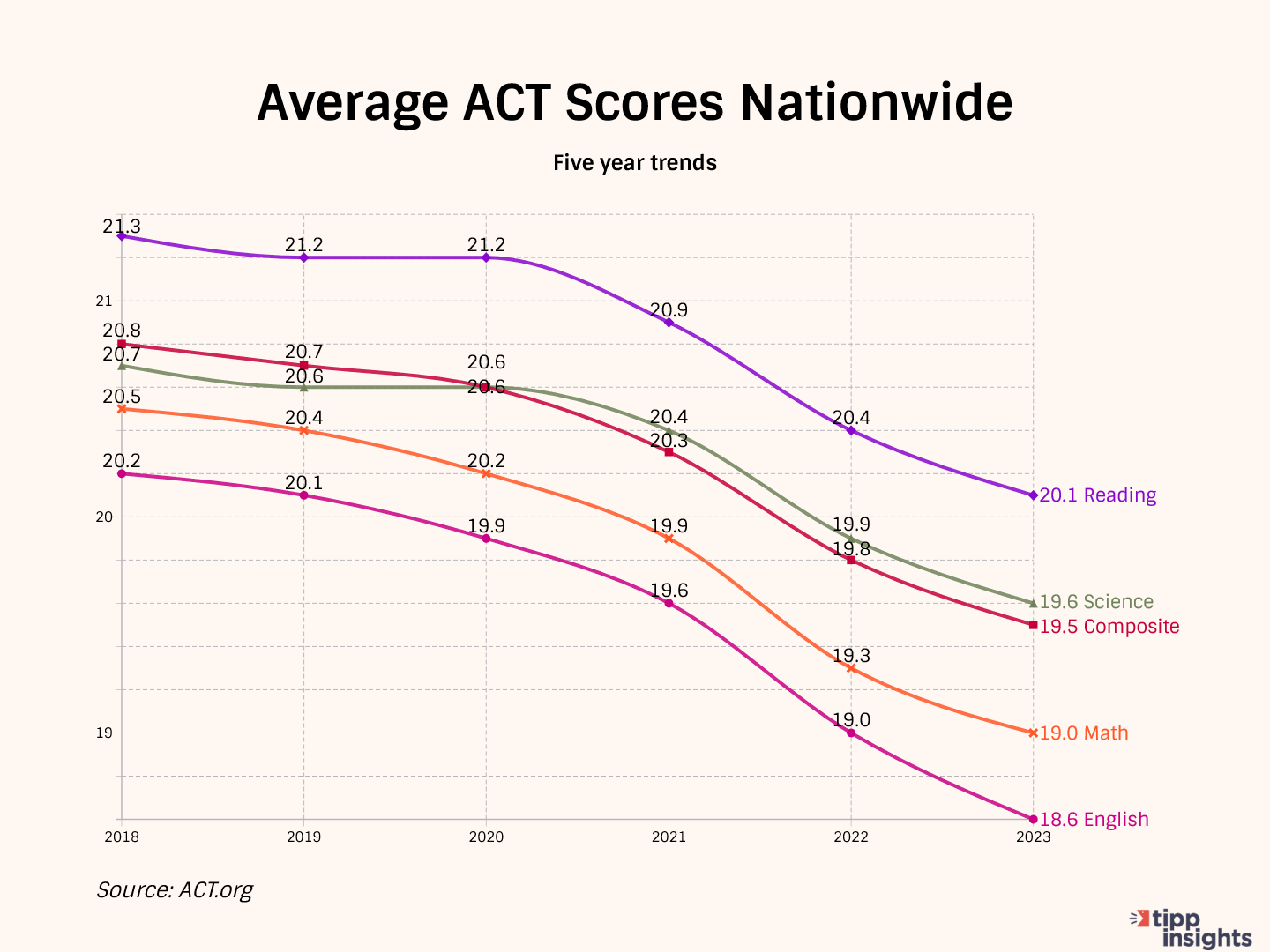
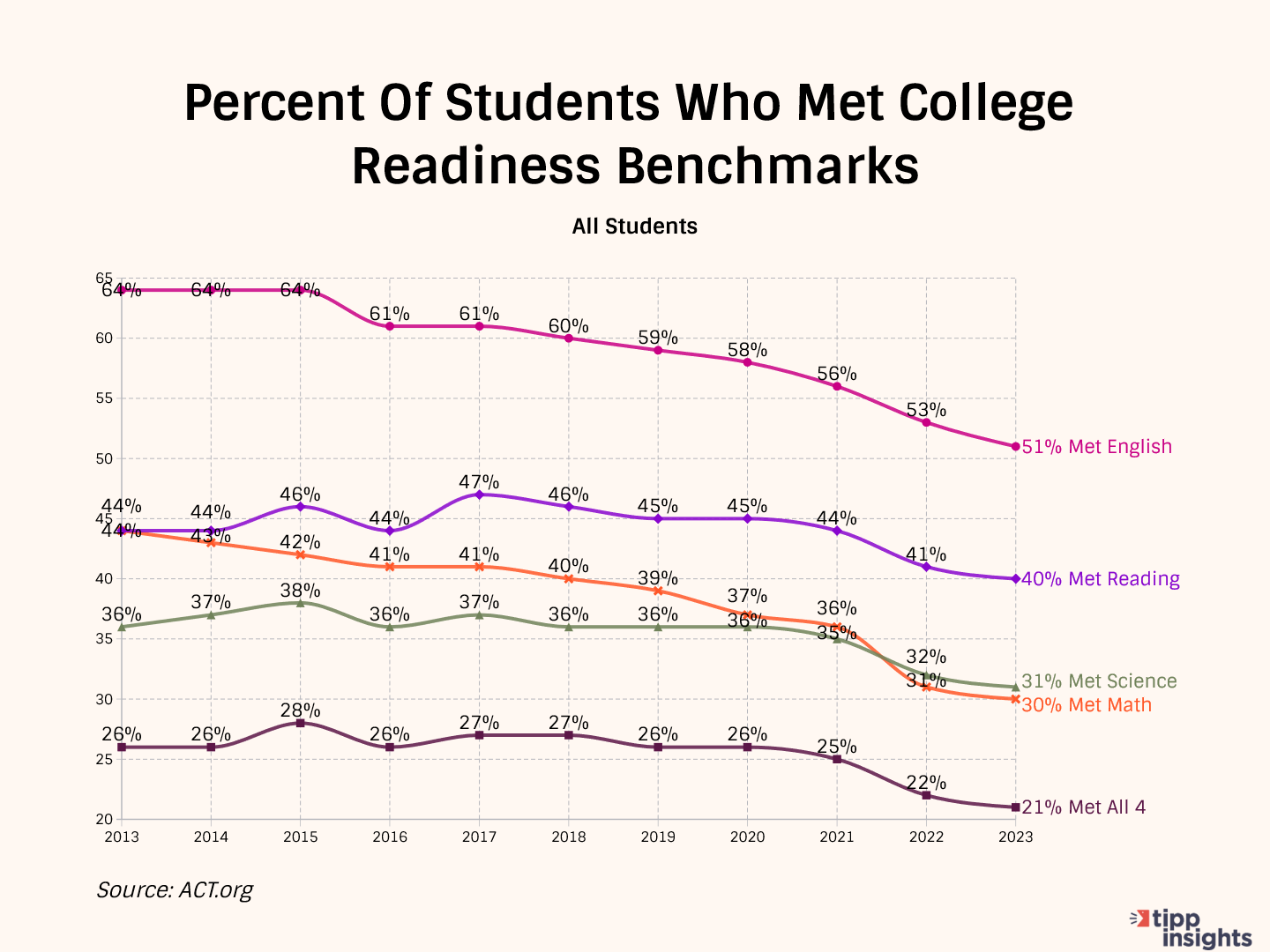
Translation: At a time when students from foreign nations are out-competing each other and technological advancements like AI are threatening jobs, our high schools continue failing to prepare our students for college or a post-high school career.
ACT Benchmarks are the gold standard in predicting college performance. Employing detailed scientific and data analytics, ACT researchers have developed benchmarks to predict a student's success in completing a college degree. The theory is that if a student in the first year of college scores at least a B in Math, English, and Science, they have better than a 50% chance of completing college.
The ACT has found that among students who began at a four-year institution and earned a first-year grade point average (FYGPA) of 3.00 or higher (i.e., B or higher grades, on average), 64% achieved a bachelor's degree within six years, as compared to only 27% for those who earned an FYGPA less than 3.00.
On this year's ACT, nearly 43% of high school students failed to meet any benchmark, not even in English Composition, which has the lowest benchmark of 18. It means that if these students were to attend college, they are more likely to drop out soon, unable to handle the rigor of a postsecondary institution.
It is improper to blame high schools alone for the debacle. Colleges and liberal organizations like Fairtest.org share equal responsibility.
Before 2019, nearly 74% of all colleges would require students to submit either the SAT or the ACT as part of their college applications. Admission teams would look at statistical analyses like the ACT Benchmark and predict if a student had a fair chance of surviving the academic pressures of college. If a student's ACT scores were below the benchmark, the admissions officer would ask the student to enroll in a 2-year college instead and transfer credits in - or do some other kind of remedial learning. The idea was to prepare a class of academically qualified students to take on college-level work before students set foot on a university campus.
After the pandemic and George Floyd, civil rights groups pressed colleges to drop the SAT and ACT as evaluating factors, charging that those tests discriminate against minority populations and poorer students. This charge is blatantly false.
In our I&I/TIPP Poll in March 2022, American parents and prospective parents overwhelmingly said they wanted their children to face a merit-based admissions policy for colleges and universities, not one that is woke. Nearly 67% of respondents wanted "SAT/ACT scores" to be employed as an evaluating factor, directly contradicting Fairtest assertions.
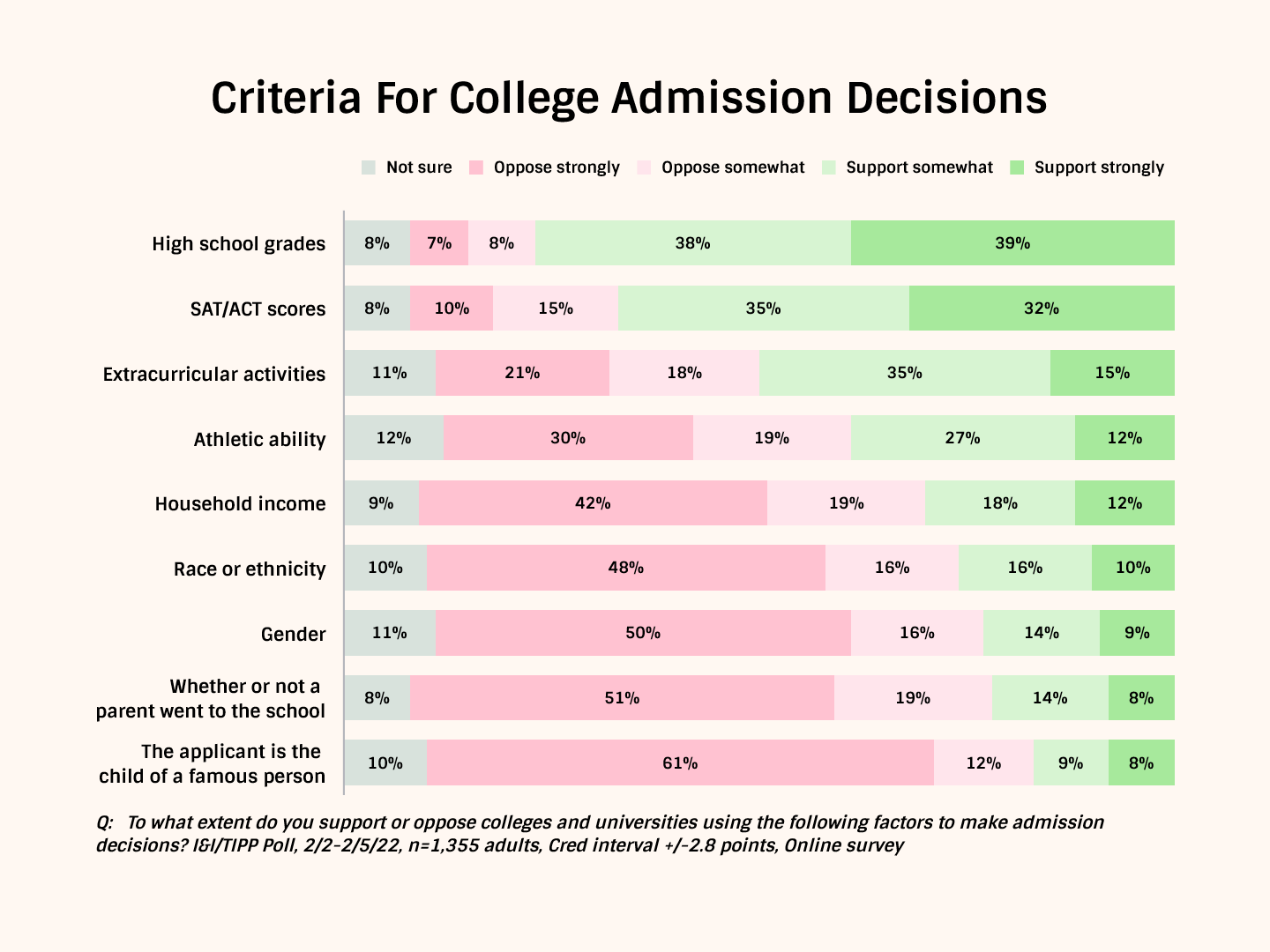
Federal and state governments have invested billions of dollars in school libraries and computer labs, all free to use if students want to study. The federal government reimburses $30 monthly for internet access for all households with income below 200% of federal poverty guidelines. Organizations like the Khan Academy, teaming up with the College Board (the creator of the SAT), provide unlimited, free, asynchronous learning opportunities online. Schoolhouse.world, a sister initiative of the Khan Academy, offers free, unlimited, synchronous online Zoom sessions on every high school topic. Both the SAT and ACT offer fee waivers.
But in higher education, as in politics, facts matter little, and perception matters more. The discrimination charge took hold, and colleges began to announce they would go test-optional. Today, only about 43% of colleges require the SAT or ACT for admissions.
High school students know that a crucial bottleneck they had to overcome previously has been removed. If they can get into college without having to study for a hard test, why do well in it? Or worse, why take it at all? If college A requires the test and college B doesn't, why even apply to college A?
The American Association of Medical Colleges, which governs medical education institutions, would not dream of making the Medical College Admissions Test (MCAT), a grueling 7½ hour exam, optional. We wonder why Fairtest.org does not advocate for the MCAT to be dropped. We suspect that Fairtest employees want access to competent doctors when visiting a hospital.
President Bush 43, referring to the performance of minorities when he pushed the No Child Left Behind law, said the "soft bigotry of low expectations" hurts minorities.
He is right. The soft bigotry of not adequately preparing a high school student to learn essential scholastic competencies in English, Math, and Science has shown its ugly face on the ACT this year. And the results portray a disaster in the making.
We could use your help. Support our independent journalism with your paid subscription to keep our mission going.

